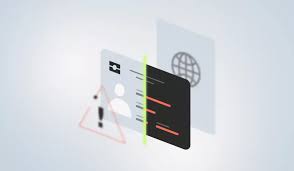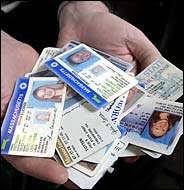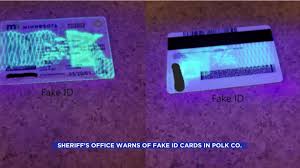fake ID laws
Introduction: The Growing Importance of Fake ID Laws
In an age where digital security, personal privacy, and regulatory compliance are at the forefront of public discourse, understanding the laws surrounding fake IDs has become increasingly relevant. Fake IDs, once seen as tools used primarily by underage teens to circumvent age restrictions, have evolved into a much larger issue tied to identity fraud, counterfeiting, and even organized crime. As these illegal documents become more sophisticated, so too have the legal frameworks designed to combat their use.
Why are Fake ID Laws Important?
The creation, distribution, and use of fake IDs pose risks to both individuals and businesses. These risks range from minor infractions like underage drinking to severe issues such as identity theft, fraud, and money laundering. Moreover, with the rise of online platforms that sell counterfeit documents, law enforcement and regulatory bodies are struggling to keep up. Understanding the legal implications of fake ID laws is crucial not only for those involved in creating or using them but also for businesses in industries like alcohol, gaming, and finance that rely on identity verification to stay compliant with the law.
This article aims to provide a thorough analysis of fake ID laws, examine how these laws impact different stakeholders, and offer insights into the market dynamics surrounding fake identification.
Chapter 1: What Are Fake ID Laws?
1.1 Definition of Fake IDs
A fake ID refers to any identification document that has been altered, counterfeited, or forged to misrepresent the holder’s true identity or age. These IDs can range from poorly made amateur attempts to highly sophisticated counterfeit documents that are nearly identical to legitimate forms of identification, such as driver’s licenses, passports, or state-issued IDs.
1.2 The Legal Framework for Fake ID Laws
Fake ID laws vary by jurisdiction, but most countries have strict regulations that make it illegal to create, sell, or use counterfeit identification. In the United States, for instance, federal law prohibits the use of fake IDs for any fraudulent purpose, with specific emphasis on the use of such documents for illegal entry into age-restricted venues, illegal purchases (e.g., alcohol or tobacco), and financial fraud.
1.3 Consequences of Violating Fake ID Laws
The penalties for creating or using a fake ID can be severe. Depending on the jurisdiction, individuals caught using fake IDs may face fines, community service, and even jail time. Businesses caught selling or distributing fake IDs can face even harsher penalties, including significant fines, business shutdowns, and criminal charges.
- Misdemeanor Charges: In most jurisdictions, using a fake ID to gain entry to an age-restricted venue or purchase age-restricted goods may result in misdemeanor charges.
- Felony Charges: When fake IDs are used to commit more serious crimes, such as identity theft or fraud, the penalties can escalate to felony charges, leading to longer prison sentences and hefty fines.
- Administrative Consequences: In addition to criminal charges, those caught using fake IDs may face administrative consequences such as driver's license suspension or revocation.
Chapter 2: Market Analysis of Fake ID Services
2.1 The Market for Fake IDs
Despite the risks, the market for fake IDs remains robust. The demand for fake IDs primarily comes from two key groups: individuals looking to bypass age restrictions (e.g., underage drinkers) and those looking to commit more serious forms of identity fraud. The market is driven by advancements in technology, which have made it easier to create high-quality counterfeit documents that can fool both individuals and businesses.
- Technological Advancements: The use of digital printing technology, photo editing software, and even 3D printing has made it possible for counterfeiters to create fake IDs that are highly convincing.
- Online Black Markets: The internet has played a significant role in the growth of the fake ID market, with many counterfeiters using online black markets and the dark web to sell their products to customers around the world.
2.2 Counterfeit IDs in the Age of Digitalization
As digitalization becomes more prevalent, the market for fake IDs has expanded. The rise of online payment platforms and identity verification services means that counterfeiters have more opportunities to use fake documents to commit financial fraud. At the same time, digital IDs and biometric identification systems are starting to offer businesses and law enforcement agencies new tools for combating fake IDs.
Chapter 3: Target Audience for Fake IDs
3.1 The Underage Market
One of the primary target audiences for fake IDs is underage individuals looking to bypass legal age restrictions, particularly for purchasing alcohol or tobacco or gaining access to age-restricted venues like bars and clubs. This demographic tends to be more willing to take the risk of using a fake ID due to the perceived minor consequences.
- Age Range: Typically, individuals aged 16 to 20 are the most likely to seek out fake IDs.
- Motivations: The desire to engage in activities restricted by age, such as drinking alcohol, attending nightclubs, or buying restricted products, drives much of the demand in this demographic.
3.2 The Fraudulent Market
A more dangerous segment of the target audience includes those who use fake IDs to commit identity fraud, financial crimes, and other forms of criminal activity. These individuals often have more sophisticated goals, such as accessing unauthorized bank accounts, securing fraudulent loans, or participating in illegal immigration schemes.
- Sophistication Level: The fraudulent market tends to use higher-quality fake IDs that can withstand more intense scrutiny. These fake IDs are often part of larger identity theft rings or organized crime operations.
- Risks and Rewards: The stakes are much higher for this demographic, as the potential consequences for being caught using a fake ID for fraud are far more severe than for underage drinking.
Chapter 4: Legal and Business Implications for Companies
4.1 The Impact on Businesses
Companies that sell age-restricted products or provide services that require identity verification are at particular risk from fake IDs. Bars, liquor stores, casinos, and even financial institutions must stay vigilant to avoid legal consequences stemming from fake ID use.
- Fines and Penalties for Non-Compliance: Businesses that fail to adequately verify the authenticity of their customers' IDs can face steep fines, lawsuits, and even the loss of their operating licenses.
- Brand Reputation Risks: A business that is caught selling alcohol or other age-restricted products to minors using fake IDs may suffer severe reputational damage, potentially leading to a loss of customers and revenue.
4.2 Technological Solutions for Businesses
With the rise of high-quality fake IDs, businesses are increasingly turning to advanced technology solutions to verify the authenticity of identification documents. From ID scanning devices to AI-powered facial recognition systems, these technologies are helping businesses detect counterfeit IDs more effectively.
- ID Scanning Technology: Many businesses now use ID scanners to check the validity of the barcodes and magnetic stripes found on driver's licenses and other forms of ID.
- Facial Recognition and Biometrics: Some companies are investing in facial recognition software and biometric scanning to ensure that the person presenting the ID matches the identity on the document. These systems offer an additional layer of security and are especially useful for financial institutions and high-stakes industries.
Chapter 5: Strategies for Combating the Fake ID Market
5.1 Government Initiatives and Law Enforcement
Governments and law enforcement agencies have taken various steps to combat the fake ID market. These efforts range from legislative reforms aimed at strengthening penalties for fake ID use to public awareness campaigns that inform people about the risks associated with using counterfeit identification.
- Tighter Regulations: Many jurisdictions are introducing stricter penalties for the creation, sale, and use of fake IDs in an effort to deter individuals from engaging in such activities.
- Public Awareness Campaigns: Educational campaigns can help to discourage potential fake ID users by highlighting the legal and financial risks involved.
5.2 Collaboration Between Businesses and Law Enforcement
Many businesses are beginning to work more closely with law enforcement to combat the fake ID problem. This includes reporting suspected cases of fake ID use, cooperating with investigations, and participating in industry-wide initiatives to improve identity verification processes.
Conclusion: The Future of Fake ID Laws and Identity Verification
Fake ID laws are an essential part of the broader legal framework designed to prevent fraud, protect consumers, and ensure public safety. As the market for counterfeit IDs continues to evolve, so too must the legal and technological solutions aimed at combating this issue. Whether through tougher legislation, advanced verification technologies, or increased collaboration between businesses and law enforcement, the future of fake ID laws will likely involve a multi-faceted approach to address both the demand and supply sides of the market.
The growing sophistication of fake IDs presents significant challenges, but also opportunities for businesses that invest in cutting-edge technology and compliance programs. By staying ahead of the curve, companies can not only protect themselves from legal repercussions but also gain a competitive advantage in a market that increasingly values security and trust.
 Custom ID services
Custom ID services
 Educational technology trends
Educational technology trends
 virtual identification
virtual identification
 Fake ID online
Fake ID online